October 3 is the birthday of a member of the Presidium of the WAC, our compatriot from Jordan, Anuar Chkua. During the visit of the delegation of the Congress to Jordan, the WAC web info portal communicated with this young and enthusiastic person.
Izolda Khagba
Love for the homeland can overcome difficulties, time and distance. It involves pride in its people, their culture and history. It gives strength to protect the interests of the motherland and its people.
For Anuar Chkua, our compatriot from Jordan and a member of the Presidium of WAC, the words “love for the motherland” are not just beautiful words, but such a driving force.
During the visit of the WAC to the Hashemite Kingdom of Jordan, he organized all the meetings of the delegation, all the preparatory work and the implementation of the visit plans fell on his shoulders. However, Anuar dismissed any gratitude with the words “there should not be the word “thanks” between the brothers, the brothers are obliged to support each other.”
Chkua’s big family
Anuar Chkua was born and raised in Amman.
The history of the family - as far as Anuar was able to restore it - began with the birth of his great-great-grandfather Hajja Isa in 1841 in Inzhich-Chukun, in Karachay-Cherkessia. From there, his ancestor moved with his family through Turkey to the Golan Heights (the Golan Heights were part of the Syrian province of Kuneitra - ed.). In the family, he had two daughters and two sons - Majid (great-grandfather of Anuara) and Said. Unfortunately, the names of the sisters did not reach the descendants.
The brothers had large families: Said - eight children, Majid - six. Today, part of the descendants of Said moved from Syria and lives in Abkhazia.
Majid's eldest son, Sharif, the grandfather of Anuar, is the only one from a large family who moved from Syria to Jordan.
Sharif Chkua was married to a Karachay - Fatima Atmyrza. They had nine children: five sons - Ashraf, Naif (Anuar's father), Marouan, Chais, Mazgar, and four daughters - Lutfiya (today she lives in Maykop - ed.), Hannah (lives in Jordan - ed.), Hiam (lives in Jordan - ed.) and Samer (lives in America - ed.).
Naif and his wife, the Chechen Frial Zandaki, in addition to Anuar, have two more younger daughters - Arua and Hannah.
Naif and Frial, the parents of Anuar, have long been pensioners. And in his youth, Naif Chkua was a manager at the Jordanian Airlines, worked for several years in Moscow, Dubai, Rome, Libya, Singapore and other places around the world.
After leaving school in 2002, Anuar entered the faculty of hospitality management, worked as the manager of the palace of Prince Ali bin al-Hussein, and now he has received an offer to become the manager of real estate at the British Embassy in Amman.
Native melody
According to Anuar Chkua, he was lucky, since he had known about his roots since childhood; his parents told him everything that they remembered about his people, about history. The family carefully kept all the memories of the homeland. From childhood he was drawn to these stories, he was always interested in it.
“Today I pass this knowledge about culture and traditions to my children. If we cannot maintain our customs and culture, then we, as a people, will lose our identity. We are distinguished and educated by the “Apsuara” code, and we do not have the right to lose it,” says Anuar Chkua.
In the family of Anuar and his wife, Circassian Alla Abadzeh (Tlicha), beautiful children grow up: nine-year-old Larisa and six-year-old Amir.
During the visit of the WAC delegation to the Hashemite Kingdom of Jordan, we had the opportunity to visit the house of Anuar and meet his wife Alla, her parents and children. Everything in this house indicated that they respect traditions and customs, behavioral norms of respect for elders and traditional hospitality.
Moreover, how pleasant it was to suddenly hear an Abkhaz song in Amman, to which the children danced with pleasure! According to Alla, the children themselves heard this melody at some holiday and have since loved it, turn it on every day. This immediately prompted the idea that, probably, it was no accident that they chose Abkhaz from all the melodies.
First visit to Abkhazia
Anuar first visited the Caucasus in 2009, and arrived in Abkhazia in 2010.
“The first impression was indescribable. I was very impressed; I was overcome by thoughts about how and why it happened that for such a long time we lost touch with our homeland. Much has changed since then. I travel to Abkhazia, Cherkessk and Maykop as often as possible. My family also visited there and fell in love with our homeland, where we have many relatives. I received citizenship and a passport,” says Anuar Chkua with joy.
It is gratifying that no matter who communicates with representatives of the diaspora in Jordan, when asked if they plan to move to their historical homeland, you unconditionally receive a positive answer. This exciting topic always evokes the smile and look of the interlocutor, full of hope.
Anuar Chkua also shared his dream of returning to Abkhazia.
“I always think about moving, and I even seriously decided to do so several times, but it is not the right moment yet. It is necessary to solve the problem with work, with housing, with education for children. We need to somehow apply the work experience that I have,” says Anuar Chkua.
He speaks Russian well, which would make it easier for him to stay in Abkhazia, but, as he himself admits, “you need to think about the family, about parents and children.”
“We have lived long enough away from our homeland, it’s high time to return to the roots,” Anuar said with regret and hope in one of the conversations.
He already tried to study the Abkhaz language in special courses, moreover, he personally oversaw the work of these courses in Amman. According to the compatriot, at such remote courses it is quite possible to study the language, or at least the basics of the native language.
“Knowing the language will help you get to know the culture and traditions of the people. Lectures on history, culture, and “Apsuara” would be of great benefit,” said Anuar Chkua.
Congress and social work
Anuar and his wife are still very young people, they have to work hard and invest in raising children, in their education. However, the head of the family devotes much of his time to social work. In particular, he is a member of the Presidium of the SC WAC from Jordan, and also takes an active part in the work of “Diwan Abaza”, an organization that unites all representatives of the Abkhaz-Abaza ethnic group of Jordan.
“I believe that my main task is to do something useful for our Abkhaz-Abaza family in Jordan, to talk about our traditions, to become a link with our homeland. I’m always looking for ways to return [to the homeland and homeland] of our Diaspora, torn from its historical homeland for many years,” Anuar shares his thoughts.
In his opinion, repatriation should be approached as carefully as possible, without haste. To return the members of the diaspora to their homeland, he believes, it is necessary to systematically prepare the ground - to solve the problem with knowledge of the language, with housing, with the selection of work. Today, the Congressional activist in Jordan writes targeted programs in this regard and tries to attract young people as much as possible, since they see them as a continuation of the organization's ideas and tasks.
Interestingly, Anuar is not the first member of Congress in his family. His grandfather, Sharif Chkua, came to Abkhazia in 1994 and took part in the second meeting of the WAC (at that time the organization was called the International Association of the Abkhaz-Abaza (Abaza) People (IAAAP) - ed.).
Preserve and continue traditions
In order for young people from the Diaspora to understand the importance of the WAC, they need to talk more about the history of the Congress, about its goals and objectives, about the problems at home, so that they know what needs to be done for their people, Anuar Chkua is sure.
“Young people in Jordan are very interested in the work of the Congress, but my task as a member of the WAC is to give them the right guidelines and inspire them. Our people need help, since we have a complicated history, we have been distant from our homeland for many decades. I will do my best to gather young people and work on the programs of the Congress and “Alashara”. We will do our best to preserve what we have,” said Anuar Chkua.
With great gratitude, he speaks of the efforts of the Abkhaz state through the Ministry of Repatriation to resolve the issue of the return of the Diaspora from all over the world to their historical homeland. The compatriot considers this work very important. In his opinion, it is necessary to conduct explanatory conversations with representatives of the Diasporas in order to influence the decision of people to return, or at least start thinking about returning, coming to their homeland.
According to Anuar, social work requires considerable time, but, realizing its importance, he is ready to continue to do it for the younger generation.
“We were brought up in the family according to the rules of “Apsuara” and I do my best to keep these traditions in our house and continue in my children. I consider this to be my main goal,” concludes Anuar Chkua.
Looking at him and his family, one wonders again: how do people manage to maintain so much tender love for their country, for their people away from their homeland, despite the time and distance? Anuar Chkua, who was born and raised in Jordan, of course, respects the culture of the country of residence, but this did not stop him from preserving and increasing his love for his roots, for the norms of “Apsuara”, which, in his opinion, will preserve the people.
We sincerely congratulate Anuar on his birthday and wish him the implementation of his plans, new ideas, victories and accomplishments in his works for the benefit of the Abkhaz-Abaza Diaspora of Jordan and his native people!
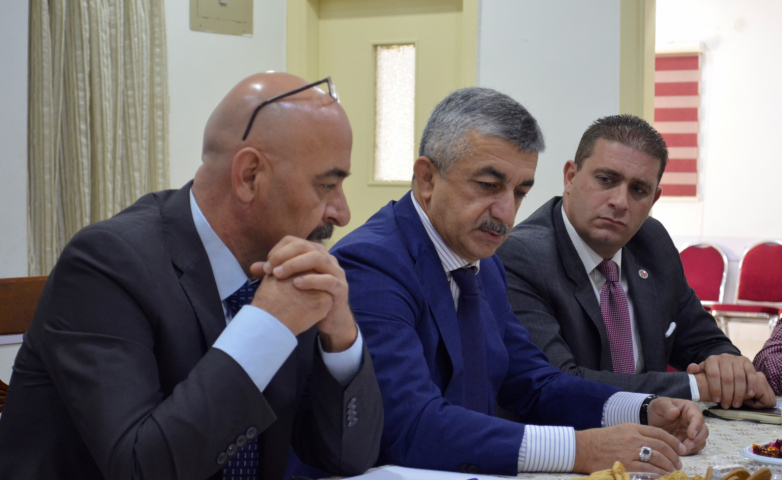
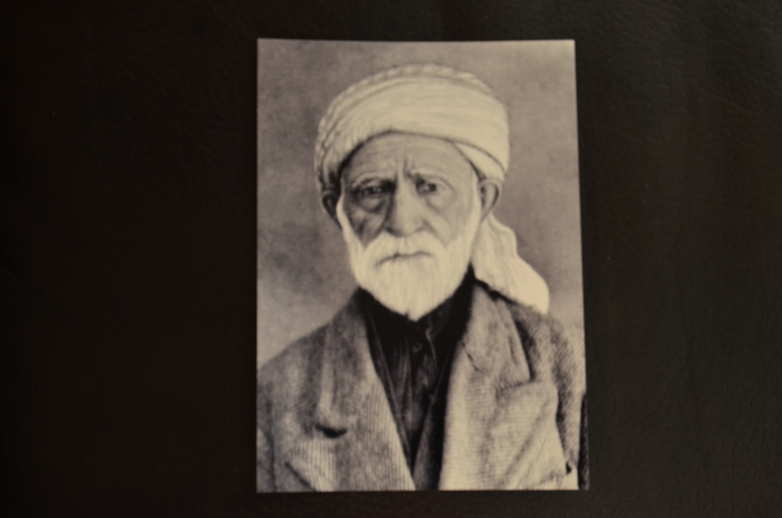
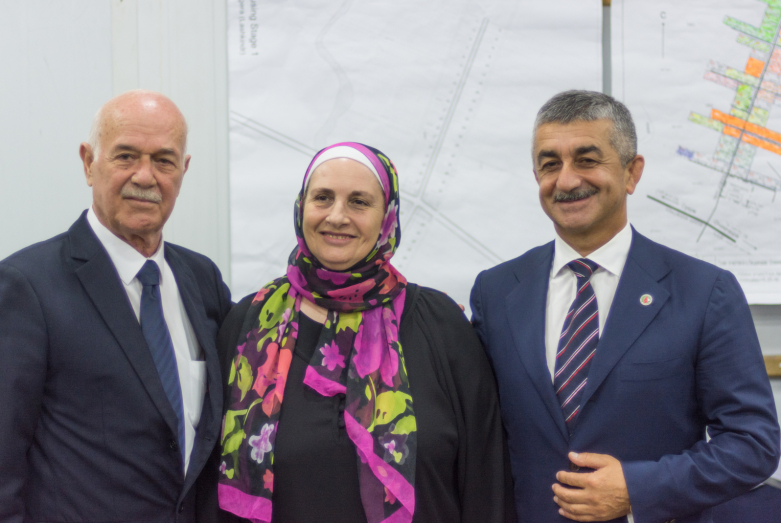
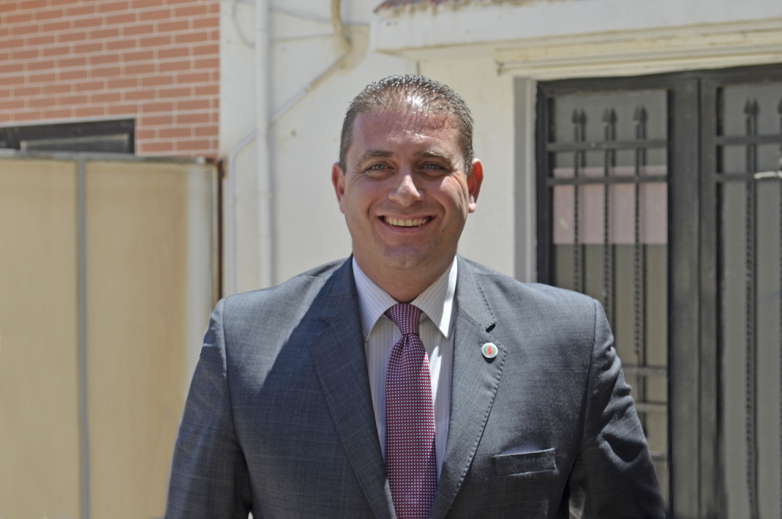
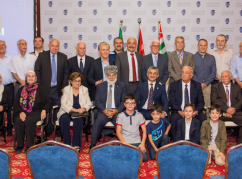
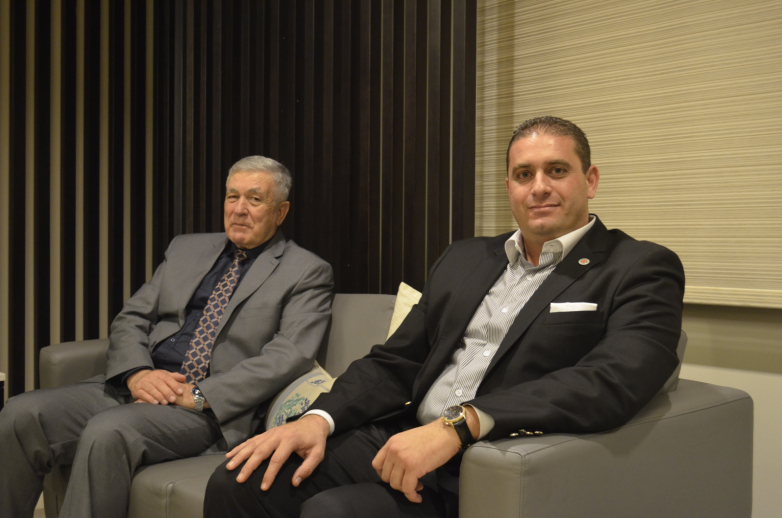
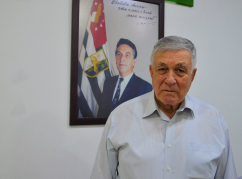
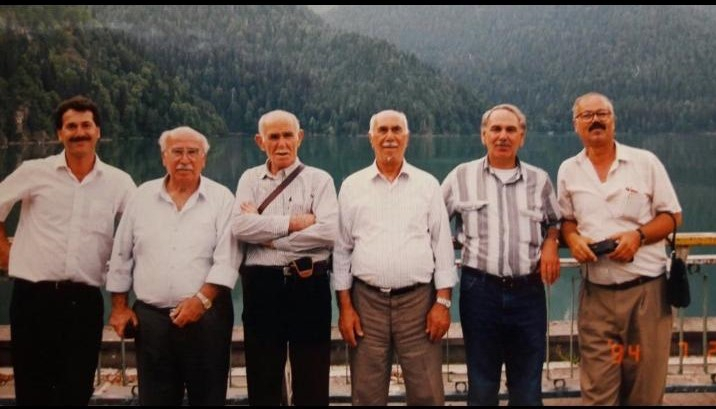
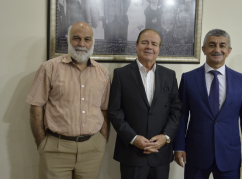
to login or register.